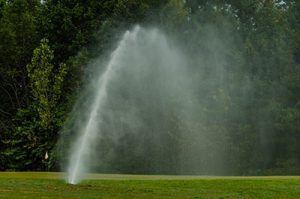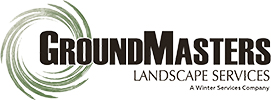Precipitation in Denver in 2019 has been historically high compared to the last few years, but the dry climate of the area still means we aren’t out of the drought yet. In order to preserve reservoir levels and prevent future tightening of water restrictions, City of Denver implements watering rules when it comes to irrigation.
Summer watering rules are in effect May 1 to Oct. 1.

Water during cooler times of the day — lawn watering is not allowed between 10 a.m. and 6 p.m.
Watering during this time of day when temperatures are high leads to an excess of water evaporating before it has time to soak into the soil, meaning you’re basically watering for nothing.
Water no more than three days per week.
Proper watering of your landscape does more than just wet the grass on top of the soil, but should help to establish a good moisture level standing within the soil as well. Watering more than three times a week can actually damage your lawn as the moisture level can become too high and drown out the grass and other flora. Just because your soil feels dry at the surface does not mean there is not moisture still present further down where the temperatures are cooler.
Do not allow water to pool in gutters, streets and alleys.
This one should be a no brainer, water pooling up in areas other than your lawn due to improperly aimed sprinklers is an instant waste of water, as none has any chance to even reach the soil. Not to mention, pooling water like this can lead to bacterial buildup and the breeding of disease if left standing too long, risking the health of your employees and visitors alike.
Do not waste water by letting it spray on concrete (sidewalks, etc.) and asphalt.
Again, water sprayed onto sidewalks and asphalt has no chance of reaching your lawn at all, and will generally evaporate even faster than watering your lawn during hotter times of the day. Additionally, more so than water pooling up in gutters, this water will usually evaporate before it has a chance to run off back into the sewer system to be recycled for future use. If it reaches the atmosphere and is not precipitated back down in our area, it is essentially a total loss.
Repair leaking sprinkler systems within 10 days.
Leaking sprinkler systems are your enemy for a number of reasons. First off, they cause pools of water underground which can lead to excess erosion, or at the very least will cause areas of your lawn to be more green and fertile while other patches may remain withered and dry due to lack of moisture, or dead due to drowning. Secondly, a leaking system cannot be shut off properly meaning you are constantly wasting water even when your system is not technically “running.”
Do not irrigate while it is raining or during high winds.
Running your sprinkler system during rain is obviously and unnecessary action, as the lawn is receiving the moisture it needs from mother nature. You also run the risk of over watering and drowning out your landscape. High winds can cause even properly aimed and calibrated sprinkler systems to spray onto sidewalks and roadways or even simply pick the water up on the wind and deposit it onto completely different properties.
These same rules generally apply year-to-year. Make sure to check before next summer for any updates or stricter regulations. Do your part to help ensure we have continued access to these water reserves for years to come, while ensuring your lawn stays beautiful and presentable year round. If you have any questions or concerns about your irrigation system, or are looking for sprinkler inspections or maintenance, give us a call at (303) 750 8867 or contact us online today.
